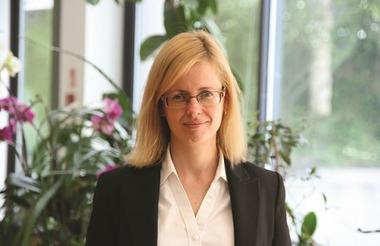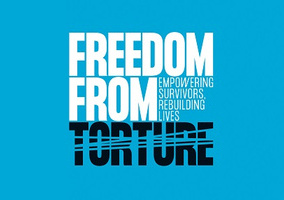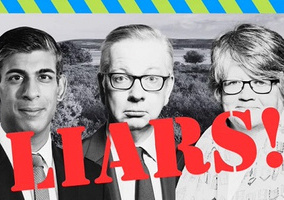A refugee charity leader has said her organisation’s campaigning against the government’s scheme to send refugees to Rwanda has made it “a target”.
Sonya Sceats, chief executive of Freedom from Torture, told an event yesterday that the charity has “enemies because of the high profile and really effective campaigning work that we have been doing, including our Stop the Flights campaign”.
Sceats said Freedom from Torture is currently “staying away” from writing for politically partisan media publications because the Rwanda policy is central to the upcoming general election.
Freedom from Torture was one of 251 organisations that wrote to prime minister Rishi Sunak this week after his Rwanda bill finally passed through the House of Lords.
‘We are not telling people how to vote’
Freedom from Torture’s Stop the Flights campaign won the Overall Award for Excellence at the Charity Awards last year after it convinced four airlines to rule themselves out of the government’s scheme to deport refugees to Rwanda.
It recently relaunched the campaign to call on AirTanker to refuse to take part in the scheme.
Sceats told the webinar hosted by law firm Russell-Cooke that the charity has been “extremely sensitive to” the risk of its campaigning being perceived as party political.
“On some particular sub-issues, there is only one party, the Conservative party, that is taking a stance that we’re opposed to,” she said.
“I’m thinking in particular of the Rwanda scheme, which is opposed by all of the other major political parties.”
Sceats said the charity is at risk of indirectly sending a signal to voters about how to cast their votes in the upcoming general election.
“We are not telling people how to vote and we’ve got no interest in doing so,” she said.
“And we’re taking particular care to avoid anything that could be seen as signalling to people about how they should be behaving in the ballot box.”
Fear around campaigning rules
Despite the risks of running the charity’s Stop the Flights campaign, Sceats said not running it would pose risks to the charity as well.
She said: “There’s reputational risk for us as well, if we just suddenly go silent at a time when the rights of refugees in this country have never been under a stronger political attack. So there were risks either way.”
Freedom from Torture’s campaigns team has trained its staff on best practice when campaigning, with a strapline of “don’t be scared, be prepared”.
“Don’t stop doing what we’re here to do, just because there is an abundance of fear about being caught by the electoral rules,” she said.
The charity took legal advice on the issues that it thought may put it at risk of conflict with the Electoral Commission, Sceats said.
Sceats told attendees that at Freedom from Torture staff avoided discussing partisan politics altogether.
“Just don’t talk about voting. Don’t even allude to voting. Don’t say things about there being a new dawn coming or a chance to have your say on this at the ballot box,” she said.
“We are staying well away from anything like that. We’re being scrupulously careful to avoid talking about any partisan views when responding to political developments.”
Caution in engaging with MPs once election is called
Clare Laxton, a communications and influencing consultant for the charity sector, also spoke at the event and urged charities not to be frightened to campaign on issues that further their charitable purpose in the election period.
“The general election is such a great opportunity for campaigning and for change and for your supporters and campaigners to see that you are continuing to talk about things that they care about,” she said.
However, Laxton encouraged caution in engaging with local MPs once the election is called.
“During an election campaign, there is no local MP, there’s only parliamentary candidates,” she said.
“So, while you know a local service or charity shop might have a great relationship with their local MP, it’s so important for them to know, actually, for that period of the campaign, they are a candidate”.
This means that by engaging with them regularly or giving them a platform, the charity could risk endorsing the political candidate or their political party, she warned.












